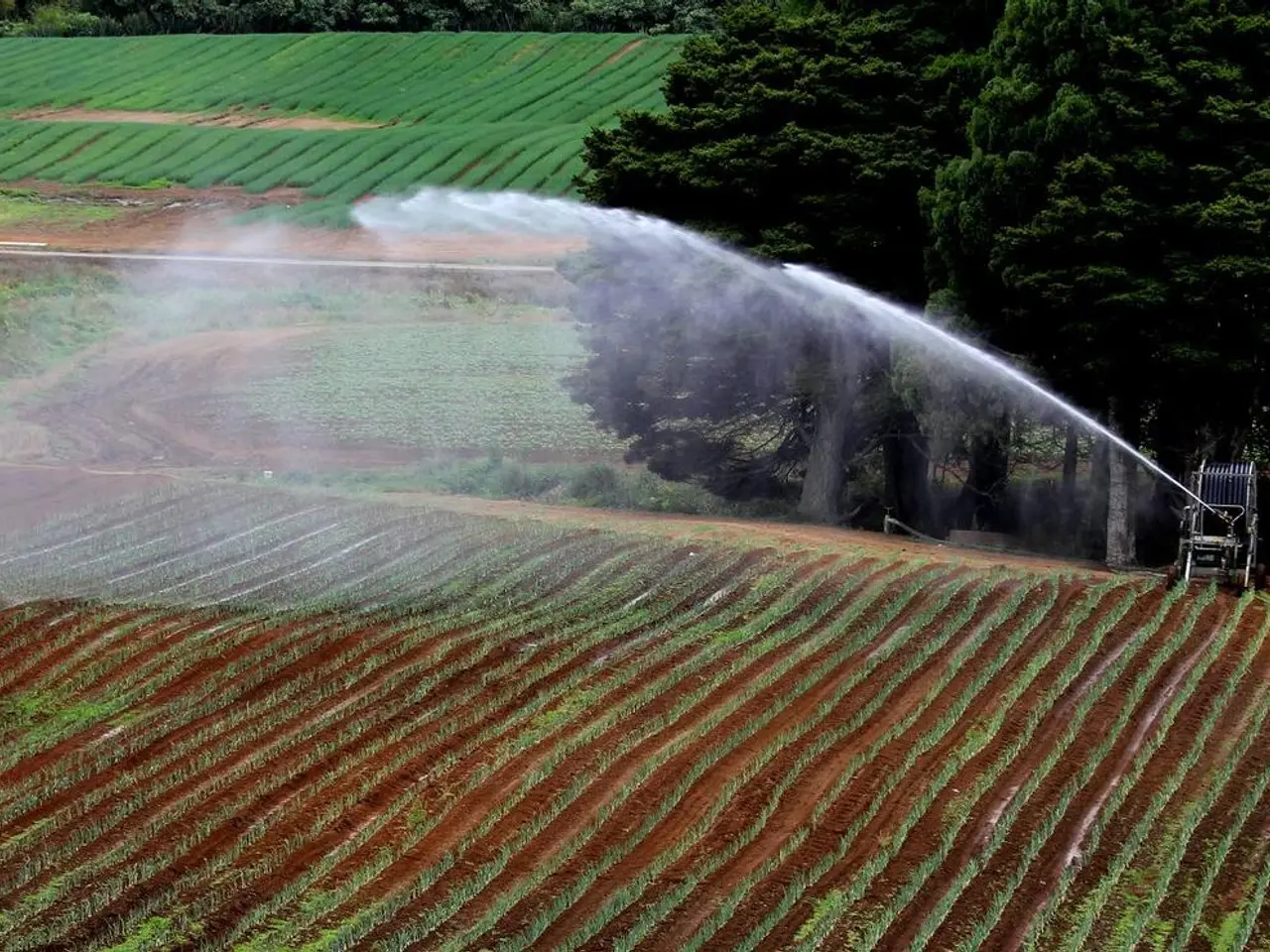The Impact of Biotechnology on Sustainable Farming Practices in 2024
In the year 2024, biotechnology is playing a significant role in revolutionising agriculture, making it more productive, resource-efficient, and environmentally sustainable. This technological advancement is addressing the global food security challenges posed by climate change and population growth.
1. Enhanced Crop Yields
Biotechnology is enabling the development of crops that grow faster and withstand adverse conditions, leading to yield increases of 25–40% in gene-edited staple crops like wheat, potatoes, rice, and corn. Precision biostimulants such as ISKAMAR® have demonstrated yield increases, for example, a 16.1% increase in potatoes under drought stress. Biofertilizers improve soil nutrient availability and crop productivity with yield improvements of 12–25%.
2. Pest and Disease Resistance
The introduction of Bt genes into cotton and maize has significantly reduced pesticide use while increasing productivity by providing built-in insect resistance. CRISPR-edited crops, such as rice varieties resistant to bacterial diseases and flood-prone conditions, showcase recent advancements in direct disease resistance. Next-generation biopesticides protect crops and beneficial insects, improving yields by 10–20%.
3. Drought Tolerance and Climate Resilience
Gene-edited crops developed through CRISPR can withstand drought, flooding, and salinity, helping farmers in climate-vulnerable areas maintain productivity. Biostimulants also improve drought resilience by activating natural plant biological responses and enabling smarter water use at the root.
4. Reduction of Chemical Inputs
Pest and disease-resistant biotech crops reduce reliance on pesticides and herbicides, lowering chemical runoff into soil and waterways. Biofertilizers reduce the need for synthetic fertilizers while improving soil health and biodiversity. Next-gen biopesticides and precision agriculture further reduce chemical applications through real-time monitoring and targeted interventions enabled by gene diagnostic sensors and smart farming tools.
5. Sustainable Livestock Production
Advances in livestock genomics improve feed efficiency, health, and disease resistance, enhancing productivity by 18–27% in cattle, poultry, and aquaculture. Biotechnological improvements include vaccines and feed enhancements that reduce animal disease and improve growth, contributing to sustainability and reducing antibiotic use.
Integration with Digital Technologies
AI, machine learning, and multi-omics technologies are accelerating biotech crop breeding and trait optimization, creating resilient crop varieties more quickly and precisely. Precision farming platforms combine genetic insights with environmental data to optimise resource use and enhance overall system sustainability.
These combined biotechnology innovations are shaping a future of agriculture that is more productive, resource-efficient, and environmentally sustainable. However, it's important to note that biotechnology isn't without challenges such as public information, administrative obstacles, and the potential for unexpected natural outcomes. The advancement and development of biotechnological strategies will be crucial in ensuring a moderate and secure food future as the world continues to grapple with the dual challenges of human progress and natural change.
Additional Information
In Chennai, farmlands are available for long-term investment and sustainable agriculture, ideal for growing a range of commodities including excellent mangoes. Hereditary engineering, atomic markers, and tissue culture are used in biotechnology for farming. Our website offers experienced guidance on organic farming techniques to make sure the farmlands produce wholesome and successful crops.
[1] Biotechnology and Sustainable Agriculture
[2] Bt Cotton in India: A Success Story
[3] The Future of Agriculture: Biotechnology and Sustainability
[4] Golden Rice: Addressing Vitamin A Deficiency in Developing Nations
[5] Advances in Biotechnology for Sustainable Agriculture
1. Organic Farming and Nutrition
The website offers experienced guidance on organic farming techniques, ensuring the production of wholesome and successful crops. This approach promotes health-and-wellness and nutrition, aligning with the growing interest in organic food-and-drink.
2. Sustainable Agriculture and Business
Long-term investment opportunities are available in farmlands for sustainable agriculture in Chennai, capable of growing a variety of commodities, including excellent mangoes. This venture offers potential for both business growth and home-and-garden endeavors.
3. Biotechnology, Science, and Education
Hereditary engineering, atomic markers, and tissue culture are techniques used in biotechnology for farming. This intersection of science, technology, education-and-self-development, and business showcases the multidisciplinary nature of sustainable agriculture.
4. Sustainable Agriculture and Environmental-Science
By investing in and implementing sustainable farming practices, one can contribute to maintaining and improving the environment. Sustainable agriculture is a key component of environmental-science and a crucial factor in addressing climate change.
5. Sustainable Agriculture and Lifestyle
Embracing sustainable agriculture can be a significant step towards adopting a healthier lifestyle, as it promotes the consumption of nutritious food-and-drink. Additionally, engaging in home-and-garden projects can foster a deeper connection between individuals and the food they consume.
6. Sustainable Agriculture, Fitness-and-Exercise, and Sports
Physical activity is an essential aspect of modern fitness-and-exercise, and working in farmlands contributes to this active lifestyle. Furthermore, participating in community farms supports sports, such as running or cycling events, organized to raise funds for agriculture-related causes.
7. Sustainable Agriculture, Technology, and Finance
Digital technologies like AI, machine learning, and multi-omics are driving the advancement of biotechnology and sustainable agriculture, improving resource efficiency and productivity. Careful financial planning is essential to invest in these technologies, ensuring a return on investment in both financial sense and sustainable lifestyle.




